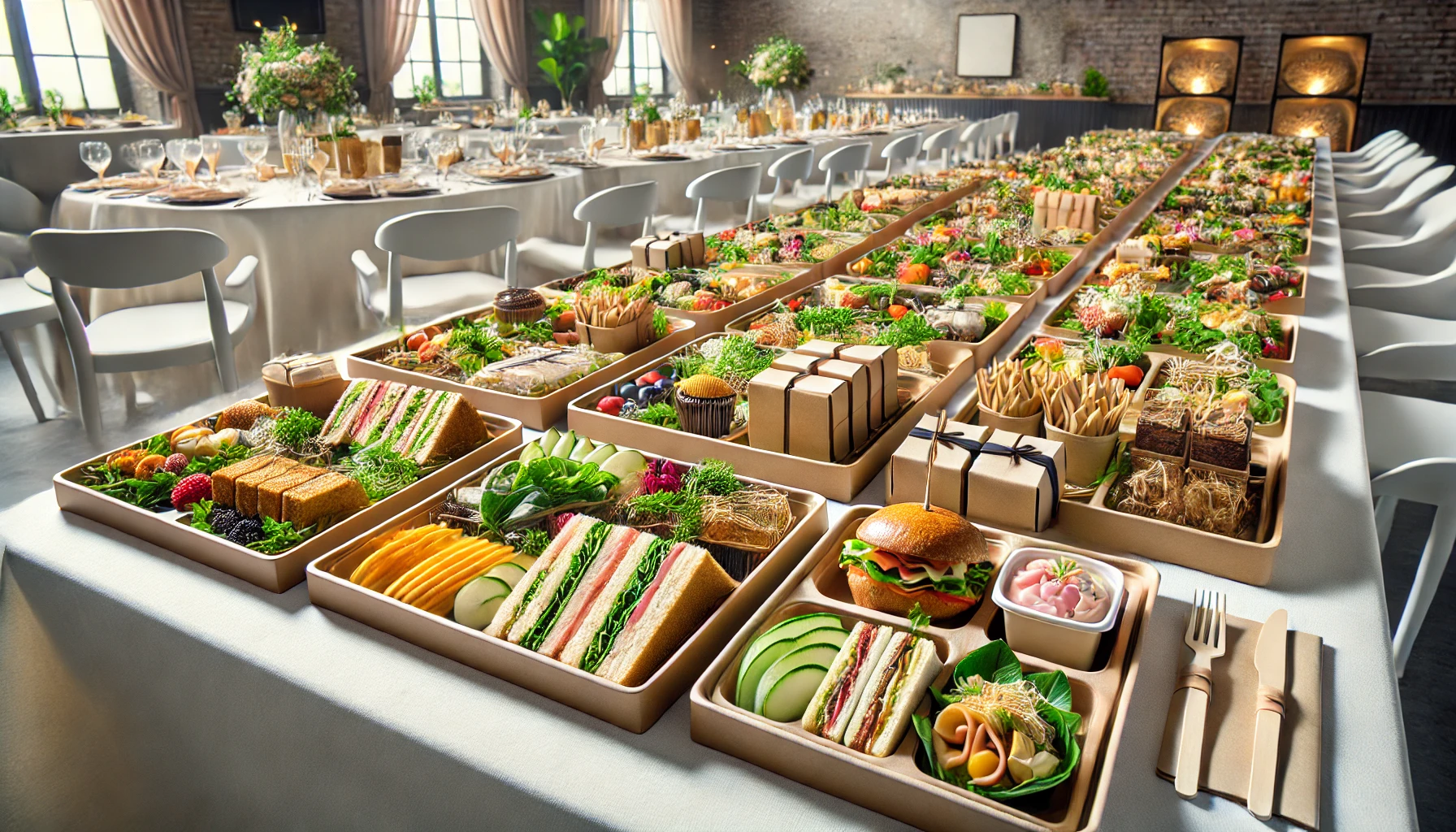Food in trays is a revolutionary concept that has transformed catering, meal packaging, and event planning. With their versatility, convenience, and sustainability, foodtrays have become essential in restaurants, catering services, and even daily household use. This article explores the ins and outs of food in trays, including their benefits, types, and applications, while following Google’s semantic SEO guidelines for meaningful, relevant, and quality content.
What Are Food Trays?
Foodtrays, also known as food platters or catering platters, are flat or compartmentalized containers used to serve or package meals. They come in various materials like plastic, aluminum, and eco-friendly options, making them suitable for diverse uses, from event catering trays to restaurant takeout trays. Their rise in popularity is tied to the growing need for portion control, convenience, and eco-conscious dining.
Types of Food in Trays
Understanding the variety of foodtrays can help you choose the right type for your needs. Below are the most common types:
1. Plastic Food Trays
Lightweight and affordable.
Widely used for restaurant takeout trays.
Suitable for single-use or reusable options.
2. Catering Platters
Ideal for events, weddings, or corporate functions.
Often decorated and designed for attractive presentation.
3. Meal Packages
Pre-packed meals for schools, offices, and airlines.
Offers portion-controlled food to minimize food waste.
4. Event Catering Trays
Customizable to match themes or menus.
Often used for buffets and large gatherings.
5. Bulk Food Trays
Used in large-scale food production and delivery.
Common in hospitals, schools, and food banks.
Benefits of Using Food Trays
1. Portion Control
Foodtrays, particularly portion-controlled food options, help maintain dietary balance. They ensure no food goes to waste while keeping servings consistent.
2. Convenience
Trays streamline the food-serving process, making them indispensable in tray service for events and restaurant takeout trays.
3. Cost-Effectiveness
Bulk food platters and meal packages are budget-friendly. They reduce packaging costs and labor for catering services.
4. Sustainability
Eco-friendly foodtrays are now widely available. These trays are made from biodegradable materials, helping reduce plastic waste.
5. Versatility
Whether you’re hosting a wedding or managing a restaurant, foodtrays cater to diverse needs, from bulk foodtrays to elegant catering platters.
Applications of Food in Trays
1. Event Catering
From weddings to business conferences, event catering trays are indispensable. They simplify food distribution and enhance presentation.
2. Takeout Services
Many restaurants rely on restaurant takeout trays for packaging meals. These trays maintain food quality during transit.
3. Meal Prepping
Individuals focused on healthy eating often use portion-controlled foodtrays for meal prep.
4. Large-Scale Food Services
Hospitals, schools, and cafeterias depend on bulk foodtrays for efficient meal delivery.
Factors to Consider When Choosing Food Trays

1. Material
Choose between plastic, aluminum, or eco-friendly materials based on your sustainability goals.
2. Size
Consider the size of the tray to match the portion requirements or event needs.
3. Durability
Ensure the tray is sturdy enough for its intended use, especially for bulk food trays or event catering trays.
4. Design
The design of a tray, such as compartments, impacts usability and presentation.
How Food Trays Enhance Dining Experiences
Foodtrays not only add convenience but also elevate dining experiences. For instance, a well-arranged catering platter can set the tone for a memorable event. Additionally, tray services in high-end restaurants offer a luxurious touch, combining style and function.
Conclusion
Food in trays has revolutionized how we serve, package, and present meals. From meal packages for individual use to catering platters for grand events, foodtrays meet the needs of modern dining. Whether for convenience, sustainability, or aesthetic appeal, foodtrays are here to stay.
FAQs
1. What are the benefits of food trays?
Foodtrays offer portion control, convenience, sustainability, and versatility, making them ideal for events, takeouts, and meal prepping.
2. Can food trays be reused?
Yes, many plastic food trays and eco-friendly options are designed for reuse, reducing waste.
3. What are catering platters?
Catering platters are large trays used for serving food at events. They are often decorative and customizable.
4. How do food trays help with portion control?
Foodtrays with compartments ensure that servings are measured, promoting balanced meals and reducing waste.
5. Are food trays eco-friendly?
Many companies now offer biodegradable and recyclable foodtrays, reducing environmental impact.

